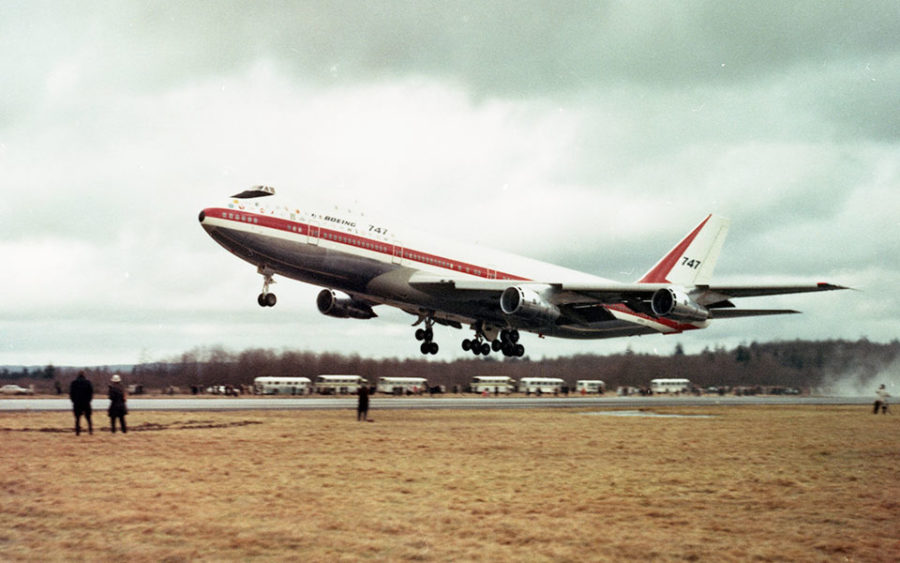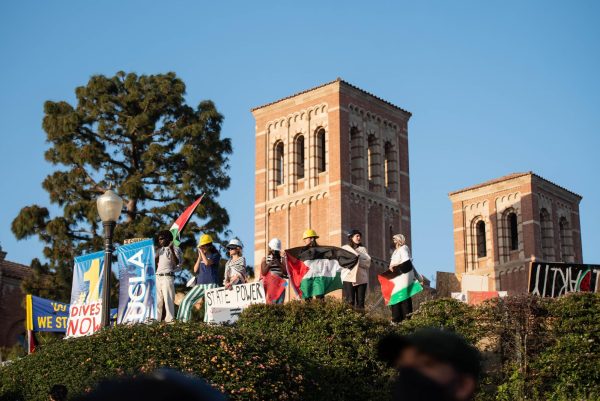The Queen of the Skies – Legacy of the Boeing 747
January 31st marked the delivery of the last Boeing 747 Jumbo Jet, one of the most iconic aircraft in aviation history. From 1969 to this year, it has appeared in countless movies, served as Air Force One numerous times (including now), and paved the way for air travel as we know it today.
Boeing is an aerospace company that was founded in 1916 by William Edward Boeing in Seattle, Washington. Today, it is a global corporation that has four main divisions: Defense, Space, and Security (BDS), Global Services (BGS), Capital Corporation (BCC), and Commercial (BCA). Although Boeing’s military and space endeavors are legendary seeing as they are one of the most advanced defense contractors in the world, their commercial aircraft division has had more than its fair share of successes (investopedia).
Having sold the most commercial aircraft in history, Boeing is extremely significant in the lives of people all around the world. From domestic family vacations via the 737, or intercontinental flights via the 787 or 777, travelers have been—knowingly or unknowingly—carried by Boeing.
BCA’s most impactful aircraft by far is the 747, lovingly christened “The Queen of the Skies” or the “Jumbo Jet.” It has seen “more than half a century of presidential service” as Air Force One, and even has been immortalized in songs from Earth, Wind, and Fire, Albert Hammond, and Dr. Dre.
Mr. Josh Laheru is a Commercial Aircraft Support Manager at BCA, and has been working for Boeing since 1997, when they acquired McDonnell Douglas. Growing up with an aerospace engineer father with a PhD, Mr. Laheru’s childhood observations of his dad working on mathematical models meant that working for Boeing came naturally.
My Father’s inspiration to work in aerospace came to him when he was very young. A Japanese Zero fighter plane flew directly above him, and he vividly remembers seeing the pilot in the cockpit of the plane looking down at him. That encounter was a seminal event in his life.
— Mr. Josh Laheru
He has worked on the 747-400 airframe, and the final variation of the 747 on the 747-8 Wing Actuation systems. When asked what exactly makes the 747 so special, Mr. Laheru explains that “the 747 Jumbo Jet can be considered the greatest airplane ever made, as it changed the face of aviation by the scale of its technological innovation, operational performance, and its economics of scale.”
To Boeing, however, the Jumbo Jet was a calculated risk. According to Space.com, the development of the 747 “threatened the aerospace company – and its banks – with bankruptcy because the aircraft’s development required Boeing to take on…about $20 billion in today’s dollars.” It meant that Boeing employees were putting their jobs on the line to see the 747 take flight. Mr. Laheru adds that “the proposal involved an important customer requesting a jet airliner that was 2½ times the size of the Boeing 707 with a 30% lower cost per unit of passenger distance and the capability to offer mass air travel on international routes.”
Eventually, he says it became the “backbone” of Boeing’s commercial fleet, with Boeing having delivered over 1500 aircraft throughout the duration of the program—Boeing’s most impactful success. It was so special that the National Aeronautics and Space Administration (NASA) chose the 747SP to transport a 2.7 meter reflecting telescope “allowing astronomers to study the solar system and beyond in ways that are not possible with ground-based telescopes” (nasa.gov).
Visually, the 2nd deck of the 747 was primarily used by airline customers for premium customer service and was unparalleled in luxury and comfort.
— Mr. Josh Laheru
Ultimately, Mr. Laheru believes that “it was inevitable that the economics of operating a four-engine aircraft like the 747 would someday come to a close,” but it has left a rich legacy which can and will be built upon. Although times and airplane models may change, the dedication and innovation exemplified by Boeing employees will never waver. As the world bids adieu to the Queen of the Skies, its eyes are on Boeing to continue the legacy of aviation greatness.
Watch the webcast of the Final 747 Celebration Event: Boeing: 747-8

Anjeli Webb is a senior at Yorba Linda High School. While she is constantly pouring her heart and soul into writing, she also frequently enjoys well-written...





































Erika • Feb 17, 2023 at 6:24 PM
Thank you for this informative and inspiring article.
Erika Laheru • Feb 17, 2023 at 6:04 PM
Outstanding report on the 747 airplane.